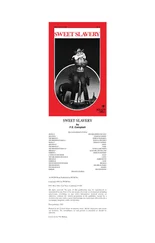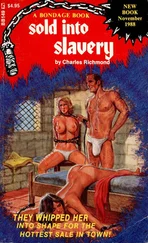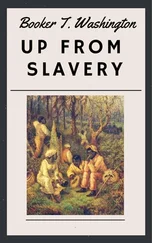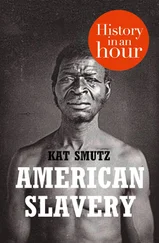Theodore Dwight Weld - American Slavery as It is - Testimonies
Здесь есть возможность читать онлайн «Theodore Dwight Weld - American Slavery as It is - Testimonies» — ознакомительный отрывок электронной книги совершенно бесплатно, а после прочтения отрывка купить полную версию. В некоторых случаях можно слушать аудио, скачать через торрент в формате fb2 и присутствует краткое содержание. Жанр: unrecognised, на английском языке. Описание произведения, (предисловие) а так же отзывы посетителей доступны на портале библиотеки ЛибКат.
- Название:American Slavery as It is: Testimonies
- Автор:
- Жанр:
- Год:неизвестен
- ISBN:нет данных
- Рейтинг книги:4 / 5. Голосов: 1
-
Избранное:Добавить в избранное
- Отзывы:
-
Ваша оценка:
- 80
- 1
- 2
- 3
- 4
- 5
American Slavery as It is: Testimonies: краткое содержание, описание и аннотация
Предлагаем к чтению аннотацию, описание, краткое содержание или предисловие (зависит от того, что написал сам автор книги «American Slavery as It is: Testimonies»). Если вы не нашли необходимую информацию о книге — напишите в комментариях, мы постараемся отыскать её.
"American Slavery As It Is" is a book composed of first-hand accounts of slavery and its horrors. The work focuses on the afflictions that slaves faced, covering their diet, clothing, housing, and working conditions. Harriet Beecher Stowe used «American Slavery As It Is» as the direct inspiration for her novel, Uncle Tom's Cabin.
American Slavery as It is: Testimonies — читать онлайн ознакомительный отрывок
Ниже представлен текст книги, разбитый по страницам. Система сохранения места последней прочитанной страницы, позволяет с удобством читать онлайн бесплатно книгу «American Slavery as It is: Testimonies», без необходимости каждый раз заново искать на чём Вы остановились. Поставьте закладку, и сможете в любой момент перейти на страницу, на которой закончили чтение.
Интервал:
Закладка:
When he went out on a hunting excursion, to be gone several days, he took several persons with him, armed generally with rifles and followed by the dogs. The dogs were as true to the track of a negro, if one had passed recently, as a hound is to the track of a fox when he has found it. When the dogs draw near to their game, the slave must turn and fight them or climb a tree. If the latter, the dogs will stay and bark until the pursuers come. The blacks frequently deceive the dogs by crossing and recrossing the creeks. Should the hunters who have no dogs, start a slave from his hiding place, and the slave not stop at the hunter's call, he will shoot at him, as soon as he would at a deer. Some masters advertise so much for a runaway slave, dead or alive. It undoubtedly gives such more satisfaction to know that their property is dead, than to know that it is alive without being able to get it. Some slaves run away who never mean to be taken alive. I will mention one. He run off and was pursued by the dogs, but having a weapon with him he succeeded in killing two or three of the dogs; but was afterwards shot. He had declared, that he never would be taken alive. The people rejoiced at the death of the slave, but lamented the death of the dogs, they were such ravenous hunters. Poor fellow, he fought for life and liberty like a hero; but the bullets brought him down. A negro can hardly walk unmolested at the south.--Every colored stranger that walks the streets is suspected of being a runaway slave, hence he must be interrogated by every negro hater whom he meets, and should he not have a pass, he must be arrested and hurried off to jail. Some masters boast that their slaves would not be free if they could. How little they know of their slaves! They are all sighing and groaning for freedom. May God hasten the time!
VII. CONFINEMENT AT NIGHT.
When the slaves have done their day's work, they must be herded together like sheep in their yards, or on their plantations. They have not as much liberty as northern men have, who are sent to jail for debt, for they have liberty to walk a larger yard than the slaves have. The slaves must all be at their homes precisely at eight o'clock, P.M. At this hour the drums beat in the cities, as a signal for every slave to be in his den. In the country, the signal is given by firing guns, or some other way by which they may know the hour when to be at home. After this hour, the guard in the cities, and patrols in the country, being well armed, are on duty until daylight in the morning. If they catch any negroes during the night without a pass, they are immediately seized and hurried away to the guard-house, or if in the country to some place of confinement, where they are kept until nine o'clock, A. M., the next day, if not called for by that time, they are hurried off to jail, and there remain until called for by their master and his jail and guard house fees paid. The guards and patrols receive one dollar extra for every one they can catch, who has not a pass from his master, or overseer, but few masters will give their slaves passes to be out at night unless on some special business: notwithstanding, many venture out, watching every step they take for the guard or patrol, the consequence is, some are caught almost every night, and some nights many are taken; some, fleeing after being hailed by the watch, are shot down in attempting their escape, others are crippled for life. I find I shall not be able to write out more at present. My ministerial duties are pressing, and if I delay this till the next mail, I fear it will not be in season. Your brother for those who are in bonds,
HORACE MOULTON.
Narrative of Sarah M. Grimke
Table of Contents
Miss Grimké is a daughter of the late Judge Grimké, of the Supreme Court of South Carolina, and sister of the late Hon. Thomas S. Grimké.
As I left my native state on account of slavery, and deserted the home of my fathers to escape the sound of the lash and the shrieks of tortured victims, I would gladly bury in oblivion the recollection of those scenes with which I have been familiar; but this may not, cannot be; they come over my memory like gory spectres, and implore me with resistless power, in the name of a God of mercy, in the name of a crucified Savior, in the name of humanity; for the sake of the slaveholder, as well as the slave, to bear witness to the horrors of the southern prison house. I feel impelled by a sacred sense of duty, by my obligations to my country, by sympathy for the bleeding victims of tyranny and lust, to give my testimony respecting the system of American slavery,--to detail a few facts, most of which came under my personal observation. And here I may premise, that the actors in these tragedies were all men and women of the highest respectability, and of the first families in South Carolina, and, with one exception, citizens of Charleston; and that their cruelties did not in the slightest degree affect their standing in society.
A handsome mulatto woman, about 18 or 20 years of age, whose independent spirit could not brook the degradation of slavery, was in the habit of running away: for this offence she had been repeatedly sent by her master and mistress to be whipped by the keeper of the Charleston work-house. This had been done with such inhuman severity, as to lacerate her back in a most shocking manner; a finger could not be laid between the cuts. But the love of liberty was too strong to be annihilated by torture; and, as a last resort, she was whipped at several different times, and kept a close prisoner. A heavy iron collar, with three long prongs projecting from it, was placed round her neck, and a strong and sound front tooth was extracted, to serve as a mark to describe her, in case of escape. Her sufferings at this time were agonizing; she could lie in no position but on her back, whieh was sore from scourgings, as I can testify, from personal inspection, and her only place of rest was the floor, on a blanket. These outrages were committed in a family where the mistress daily read the scriptures, and assembled her children for family worship. She was accounted, and was really, so far as alms-giving was concerned, a charitable woman, and tender hearted to the poor; and yet this suffering slave, who was the seamstress of the family, was continually in her presence, sitting in her chamber to sew, or engaged in her other household work, with her lacerated and bleeding back, her mutilated mouth, and heavy iron collar, without, so far as appeared, exciting any feelings of compassion.
A highly intelligent slave, who panted after freedom with ceaseless longings, made many attempts to get possession of himself. For every offence he was punished with extreme severity. At one time he was tied up by his hands to a tree, and whipped until his back was one gore of blood. To this terrible infliction he was subjected at intervals for several weeks, and kept heavily ironed while at his work. His master one day accused him of a fault, in the usual terms dictated by passion and arbitrary power; the man protested his innocence, but was not credited. He again repelled the charge with honest indignation. His master's temper rose almost to frenzy; and seizing a fork, he made a deadly plunge at the breast of the slave. The man being far his superior in strength, caught his arm, and dashed the weapon on the floor. His master grasped at his throat, but the slave disengaged himself, and rushed from the apartment. Having made his escape, he fled to the woods; and after wandering about for many months, living on roots and berries, and enduring every hardship, he was arrested and committed to jail. Here he lay for a considerable time, allowed scarcely food enough to sustain life, whipped in the most shocking manner, and confined in a cell so loathsome, that when his master visited him, he said the stench was enough to knock a man down. The filth had never been removed from the apartment since the poor creature had been immured in it. Although a black man, such had been the effect of starvation and suffering, that his master declared he hardly recognized him--his complexion was so yellow, and his hair, naturally thick and black, had become red and scanty; an infallible sign of long continued living on bad and insufficient food. Stripes, imprisonment, and the gnawings of hunger, had broken his lofty spirit for a season; and, to use his master's own exulting expression, he was "as humble as a dog." After a time he made another attempt to escape, and was absent so long, that a reward was offered for him, dead or alive. He eluded every attempt to take him, and his master, despairing of ever getting him again, offered to pardon him if he would return home. It is always understood that such intelligence will reach the runaway; and accordingly, at the entreaties of his wife and mother, the fugitive once more consented to return to his bitter bondage. I believe this was the last effort to obtain his liberty. His heart became touched with the power of the gospel; and the spirit which no inflictions could subdue, bowed at the cross of Jesus, and with the language on his lips--"the cup that my father hath given me, shall I not drink it?" submitted to the yoke of the oppressor, and wore his chains in unmurmuring patience till death released him. The master who perpetrated these wrongs upon his slave, was one of the most influential and honored citizens of South Carolina, and to his equals was bland, and courteous, and benevolent even to a proverb.
Читать дальшеИнтервал:
Закладка:
Похожие книги на «American Slavery as It is: Testimonies»
Представляем Вашему вниманию похожие книги на «American Slavery as It is: Testimonies» списком для выбора. Мы отобрали схожую по названию и смыслу литературу в надежде предоставить читателям больше вариантов отыскать новые, интересные, ещё непрочитанные произведения.
Обсуждение, отзывы о книге «American Slavery as It is: Testimonies» и просто собственные мнения читателей. Оставьте ваши комментарии, напишите, что Вы думаете о произведении, его смысле или главных героях. Укажите что конкретно понравилось, а что нет, и почему Вы так считаете.












